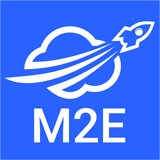WooCommerce Marketplace
Discover our favorites
New and noteworthy
A hand-picked selection of new and interesting extensions in the Marketplace.
Popular products
Payment solutions
Accept secure payments through the world’s leading payment processors and gateways.
Themes
Browse beautiful and effective themes for your WooCommerce store.
Marketing
Store Content and Customizations
Conversion
Additional payment methods
Add alternative ways for your customers to pay to your checkout in addition to your primary payment solution.
Grow your business
Explore the tools and integrations you need to market your store and grow your business.



















